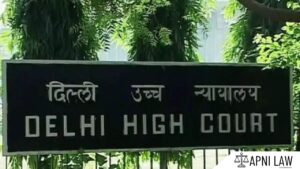In a landmark decision, the Kerala High Court has affirmed that cartoonists, as integral members of the press and media, are entitled to the Freedom of Expression guaranteed under Article 19(1)(a) of the Indian Constitution. The court quashed legal proceedings against the printer, publisher, editorial director, managing editor, editor, and chief editor of the Kerala news daily ‘Malayala Manorama’ under the Prevention of Insult to National Honour Act, 1971. These proceedings were initiated for allegedly insulting the National Flag through a published caricature.
The case stemmed from a caricature published by Malayala Manorama during the 70th Independence Day celebrations, depicting Mahatma Gandhi and the Indian flag with a black outline on the saffron portion. Justice P.V. Kunhikrishnan noted the powerful impact of cartoons in visual commentary and their ability to engage, provoke, and inspire audiences.
“Cartoonists are part of the press and media and are entitled to the freedom of expression guaranteed by Article 19(1)(a) of the Constitution. This fundamental right allows them to express their opinions, ideas, and creativity through cartoons, subject to reasonable restrictions under Article 19(2),” the court stated. These restrictions include considerations for the sovereignty and integrity of India, state security, friendly relations with foreign states, public order, decency or morality, contempt of court, defamation, and incitement to an offense.
The complaint was lodged by the Area Committee General Secretary of the Bharatiya Janata Party. The petitioners sought the High Court’s intervention to quash the FIR and final report, asserting that Malayala Manorama had no intention of disrespecting the National Flag or Mahatma Gandhi. They argued that the cartoonist was merely exercising artistic freedom to celebrate Independence Day.
The court clarified that caricatures often exaggerate or distort features to create humor, satire, or critique, with the power to communicate significant messages through minimal imagery. It emphasised that “insult” is a necessary element for offenses under Section 2 of the Prevention of Insult to National Honour Act, which prescribes up to three years of imprisonment or a fine for insulting the National Flag or Constitution.
Since the Act does not define “insult,” the court referred to its ordinary meaning, derogatory or demeaning remarks, comments, or actions intended to offend or humiliate. The court stated, “The Act aims to prevent insults to national honor, requiring deliberate intent to insult for its provisions to apply.”
The court found no such intent in the publication by Malayala Manorama, which featured the caricature alongside articles celebrating Indian Independence. It praised the cartoonist and the publication for their contribution to the Independence Day edition, criticizing the complaint as hypercritical and focused on negatives.
Ultimately, the court ruled that an offense under Section 2 of the Act necessitates an act committed with the intent to insult the National Flag, which was not evident in this case. The court concluded, “The offense is applicable when a person publicly or in view of the public commits acts like burning, mutilating, defacing, or otherwise showing disrespect to the National Flag or the Constitution with the intention to insult.”
As a result, the court quashed the proceedings against the petitioners, reinforcing the protection of freedom of expression for cartoonists and media professionals.












